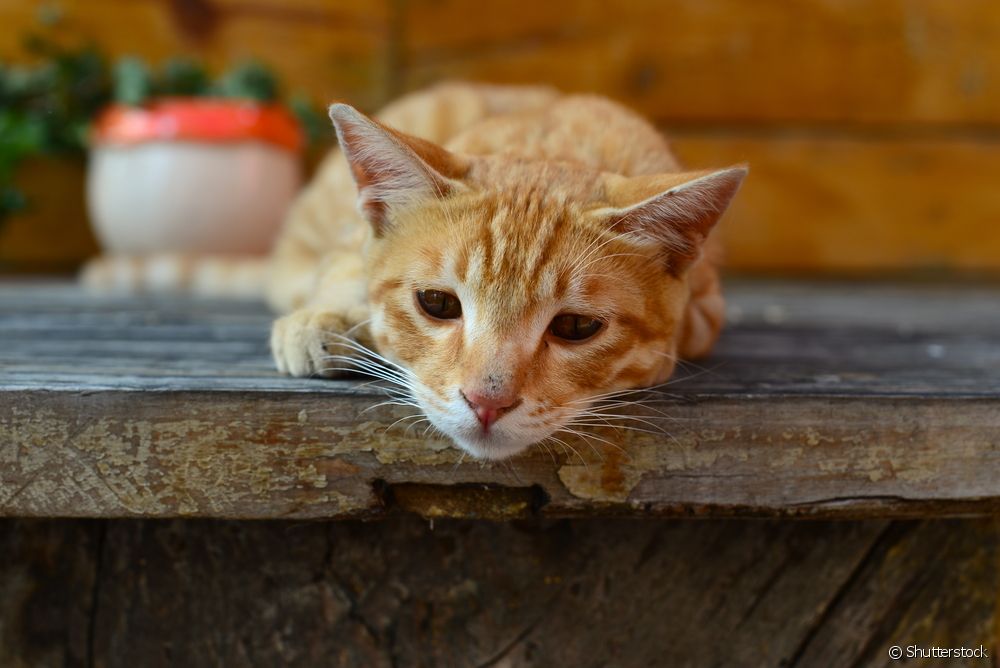Cat with tummy ache: how to identify the discomfort and what the symptom may indicate?

Table of contents
Suffering from tummy aches is not something exclusive to the human world: our kittens can also have this nuisance. Diarrhea in cats can be caused by different reasons, from a simple change in diet to more serious problems, such as feline panleukopenia. Still, because they are extremely hygienic animals, it is not always easy to identify when he is experiencing it.To help you recognise the signs, we've put together everything you need to know about cats with tummy pain below. Take a look!
How to identify a cat with diarrhea?
Felines hardly show when something is not going well, so detecting symptoms of discomfort and illness can be a difficult task. In the case of a cat with a stomach ache, the ideal is to pay attention to how often your kitty is going to the litter box and, especially, the appearance of the animal's feces, since liquid, softened and yellowish textures are indications of diarrhea.out-of-place needs can also indicate the problem: the chances are high that the cat with a tummy ache will not be able to get to the correct place in time.
Another thing to watch out for is the cat's curvature when using the litter box. This is because abdominal pain can become stronger at this time. It is also worth keeping an eye on the cat's general behavior: excessive meowing, aggression, apathy and lack of appetite are some signs that something is not right.

Diarrhea in cats: what can cause the problem?
A cat with a tummy ache can have a number of factors behind it, ranging from the simple to treat to the more complicated. One of the most frequent is a sudden change in the cat's diet. But there may still be other reasons for the problem, check out the list below:
- Unbalanced diets: Felines that are fed poor quality food or food that is not recommended may develop frequent diarrhea;
- Presence of other diseases: some worms and viruses can also cause problems in your kitten's digestion. Panleukopenia, for example, is quite dangerous and can be fatal. To avoid this, it is important that your pet is always up to date with vaccination and deworming;
Cat with tummy ache: what to do to ease the situation?
As soon as you notice that your cat has diarrhea, it is best to take him to the vet. After the clinical evaluation, the professional will prescribe the best treatment for the problem - and may also order tests to rule out more serious diseases. Still, after the diagnosis, it is worth investing in some simple attitudes to alleviate the situation, such as leaving the drinking fountain always with clean water and a clean water bottle.fresh, offer more nutritious food and, above all, let your kitten rest to replenish lost energy.
See_also: All about the Newfoundland: get to know all the characteristics of this large dogHow to prevent cases of diarrhea in cats?
Although it is a fairly common health condition among felines, some care must be taken when it comes to cats with belly pain. Keeping your friend's dewormer up to date is one of them, as the medication is effective in fighting diseases caused by worms. In addition, a balanced diet is essential for maintaining his health.

